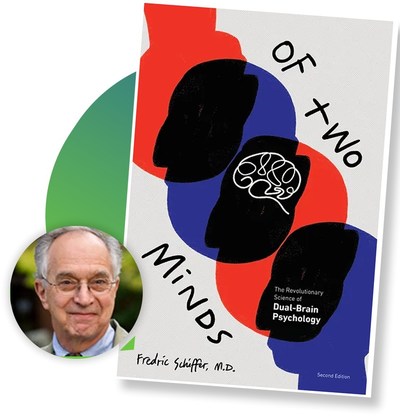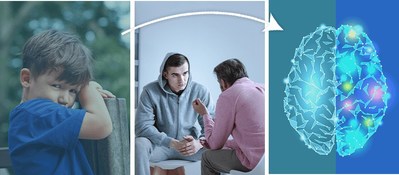Novel Treatment of Opioid Use Disorder Receives Grant for Continued Research
23 Nov 2022
Phase 2Phase 1Clinical Result
BOSTON, Nov. 23, 2022 /PRNewswire/ -- A novel approach to the treatment of opioid use disorder called Dual-Brain Psychology (DBP) has received a Phase II grant for continued research after publication showing promising results in a Phase 1 trial of 40 participants with opioid use disorder over the course of 4 weeks with an average decrease in opioid cravings of 71%. The difference over a sham control was highly significant. Because of the success of the trial, the FDA has given the project Breakthrough Designation in order to expedite the approval process. The results of the Phase 1 trial have been published in Frontiers in Psychiatry, in a paper titled, An Effective and Safe Novel Treatment of Opioid Use Disorder: Unilateral Transcranial Photobiomodulation. The Phase II NIH/NIDA/HEAL grant is for a study of 130 participants for 25 weeks of treatment.
Continue Reading

Preview
Source: PRNewswire
Dr. Fredric Schiffer, MD, a psychiatrist focused on brain studies to help treat addiction and other psychological disorders, has spent 30 years researching and developing the Dual-Brain Psychology theory (DBP) and working on its clinical applications.

Preview
Source: PRNewswire
A novel approach to the treatment of opioid use disorder called Dual-Brain Psychology (DBP) has received a Phase II grant for continued research.
Dr. Fredric Schiffer, MD, an Assistant Professor in Psychiatry, part time, at Harvard, is a psychiatrist focused on brain studies to help treat addiction and other psychological disorders, has spent 30 years researching and developing the Dual-Brain Psychology theory (DBP) and working on its clinical applications. DBP focuses particularly on helping patients heal from trauma, which he feels is the underlying cause of most addictions as well as depression and anxiety disorders.
In psychotherapy based on DBP, patients discover that they have very different emotional reactions when activating different hemispheres of the brain — as if they have two different personalities inside of them. One side has a more positive and mature outlook while the other is more negative, reactive, and childlike. Through therapy, the more mature side of the brain can help support the less mature side in order to help patients heal from trauma. Each brain hemisphere and its personality can be easily stimulated by asking patients to block their vision so they can see only out of the extreme left or right side. The light from one particular side activates the other side of the brain, allowing patients to access thoughts and emotions unique to that hemisphere of the brain. Another method of hemispheric stimulation is to place a special LED that emits near-infrared light over one hemisphere of the brain, which is called photobiomodulation, and to date has not had any significant side effects. This LED was used in the Phase I study and will be used in the Phase II study to begin shortly.
This LED therapeutic intervention, if approved by the FDA, can be used alongside other therapy modalities such as Internal Family Systems, Dialectic Behavioral Therapy, Cognitive Behavioral Therapy, EMDR, and psychodynamic psychotherapy to enhance the effectiveness of the treatment. Psychotherapy based on PBP, uses lateral vision, and in published case reports appears to be extremely effective for a majority of patients.
To earn more about Dual-Brain Psychology Theory and to sign up for the March 11th Symposium for continuing education units: www.dbpinstitute.com
About Fredric Schiffer, MD
Fredric Schiffer, MD is a psychiatrist in private practice in Newton, MA, where he is also the CEO and founder of MindLight, LLC and of the Dual-Brain Psychology Clinic. His discovery of DBP comes out of the Nobel Prize awarded Split-Brain Studies and is supported by 23 peer-reviewed publications from McLean Hospital and Harvard Medical School. His book, Of Two Minds, is now in its second edition and is available on Amazon.com in both paperback and on Kindle.
Learn more about Dr. Fredric Schiffer by visiting his website at www.dbpinstitute.com. Ready to learn more about integrating Dual-Brain Psychology Theory into your practice? Sign up for Dr. Schiffer's symposium this upcoming March (counts for CEUs) through his web site www.dbpinstitute.com.
Farra Lanzer
[email protected]
970-541-3284
SOURCE Dr. Fredric Schiffer, MD
For more details,please visit the original website
The content of the article does not represent any opinions of Synapse and its affiliated companies. If there is any copyright infringement or error, please contact us, and we will deal with it within 24 hours.
Organizations
Indications
Targets
Drugs
-Chat with Hiro
Hot reports
Get started for free today!
Accelerate Strategic R&D decision making with Synapse, PatSnap’s AI-powered Connected Innovation Intelligence Platform Built for Life Sciences Professionals.
Start your data trial now!
Synapse data is also accessible to external entities via APIs or data packages. Empower better decisions with the latest in pharmaceutical intelligence.



